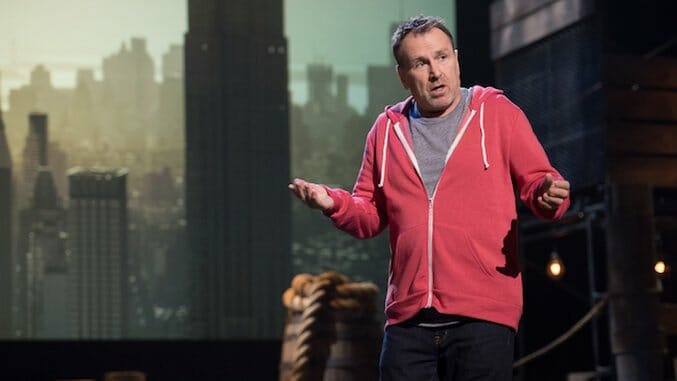Colin Quinn is a Bitterly Honest Spokesman for New York City
Photo c/o Netflix
Compared to his modest outfit—Adidas, skinny jeans, a salmon-colored hoodie—Colin Quinn’s got a pretty ostentatious stage set-up. At the center is a little loading dock pier with some cargo; there’s streams of flags running across the ceiling, as well as a mini mart-style countertop with cheese, candy, and stacks of Anthoras for coffee on-the-go. It’s a motley, artifact-ful representation of New York City, with which Quinn has a love/hate relationship and which serves as his special’s central trope. “The New York Story,” an off-Broadway show that Quinn performed in 2015, is an hour of homage and rumination, a biting reflection on the city’s characteristic bitterness, traced back to the island’s roots.
To sum it up: “‘Yankees’ is a Dutch word, the word ‘fuck’ is a Dutch word,” Quinn casually intones in his Brooklynite accent. “So if you ever see someone on a stoop in Brooklyn going, ‘Fuckin’ Yankees,’ they’re speaking Dutch.”
-

-

-

-

-

-

-

-

-

-

-

-

-

-

-

-

-

-

-

-

-

-

-

-

-

-

-

-

-

-

-

-

-

-

-

-

-

-

-

-








































